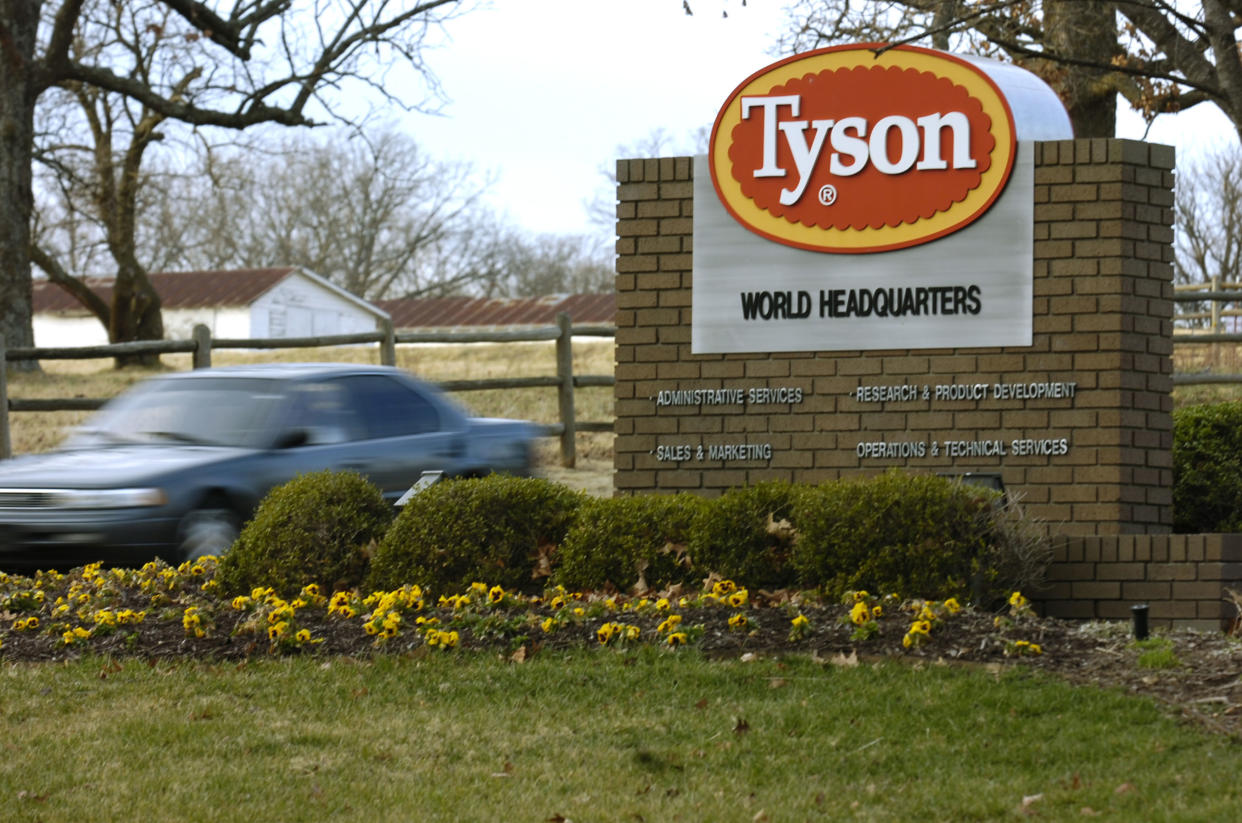Humane Society president seeks seat on Tyson board

LITTLE ROCK, Ark. (AP) — The president of an organization leading the fight against cramped cages for pregnant pigs said Tuesday he's seeking a spot on Tyson Food Inc.'s board of directors to put more pressure on the nation's second-largest pork processor to abandon the crates.
Ending the use of so-called gestation crates has been a top priority for the Humane Society of the United States, which has helped convince companies including McDonald's, Burger King and Safeway to pledge to move away from buying pork from farms that use the cages.
Wayne Pacelle, the animal welfare organization's president and chief executive officer, acknowledged he has a remote chance of being elected to Tyson's board, but he said he would add a valuable perspective to the Springdale, Ark.-based company if his campaign was successful.
"It's one thing to be on the outside and asking for animal welfare concerns to be elevated within in the company," Pacelle told The Associated Press. "It's another thing to try to do it from the inside."
Tyson spokesman Gary Mickelson said the company is committed to humane animal treatment and expects the same from farmers who supply it with chickens, hogs and cattle.
"We're not surprised Wayne Pacelle wants to sit on our board," Mickelson said in an email.
Mickelson added that the company is handling its nomination process according to the law and the company's bylaws. Voting documents will go out to shareholders, who can cast votes for the board of directors before or at the company's annual meeting, Mickelson said. Election results will then be reported at the meeting in February, Mickelson said. There are nine board members, he said.
The Humane Society of the United States owns stock in Tyson and dozens of other companies that use animal products so its representatives can attend shareholder meetings and submit proposals for improved animal welfare policies.
Tyson has said it buys hogs from thousands of family farms, many of which use gestation crates for mother pigs and some of which have group or pen housing.
"Experts believe both housing systems are humane for mother pigs when managed properly," Mickelson said in an email.
Gestation crates typically measure about 2 feet by 7 feet, holding a sow that might weigh 400 to 600 pounds in a space that's too narrow to turn around or even sleep on its side.
While animal welfare groups insist the stalls are cruel, the American Veterinary Medical Association and the American Association of Swine Veterinarians have said science does not provide a clear-cut answer and there are advantages and disadvantages to both approaches.
One major reason producers switched to gestation crates is that sows in group pens tend to fight, leading to injuries and submissive sows losing out on food to more dominant animals.
Still, the Humane Society of the United States has pressured a number of companies, including the leading pork producer and one of Tyson's main competitors, Smithfield Foods Inc., to move away from the crates.
"Tyson Foods is a major outlier in this debate," Pacelle said.
Smithfield has said it will phase out the use of gestation crates at its facilities by 2017. Pacelle said it would be reasonable for Tyson to adopt the same timeframe.
___
Follow Jeannie Nuss at http://twitter.com/jeannienuss

